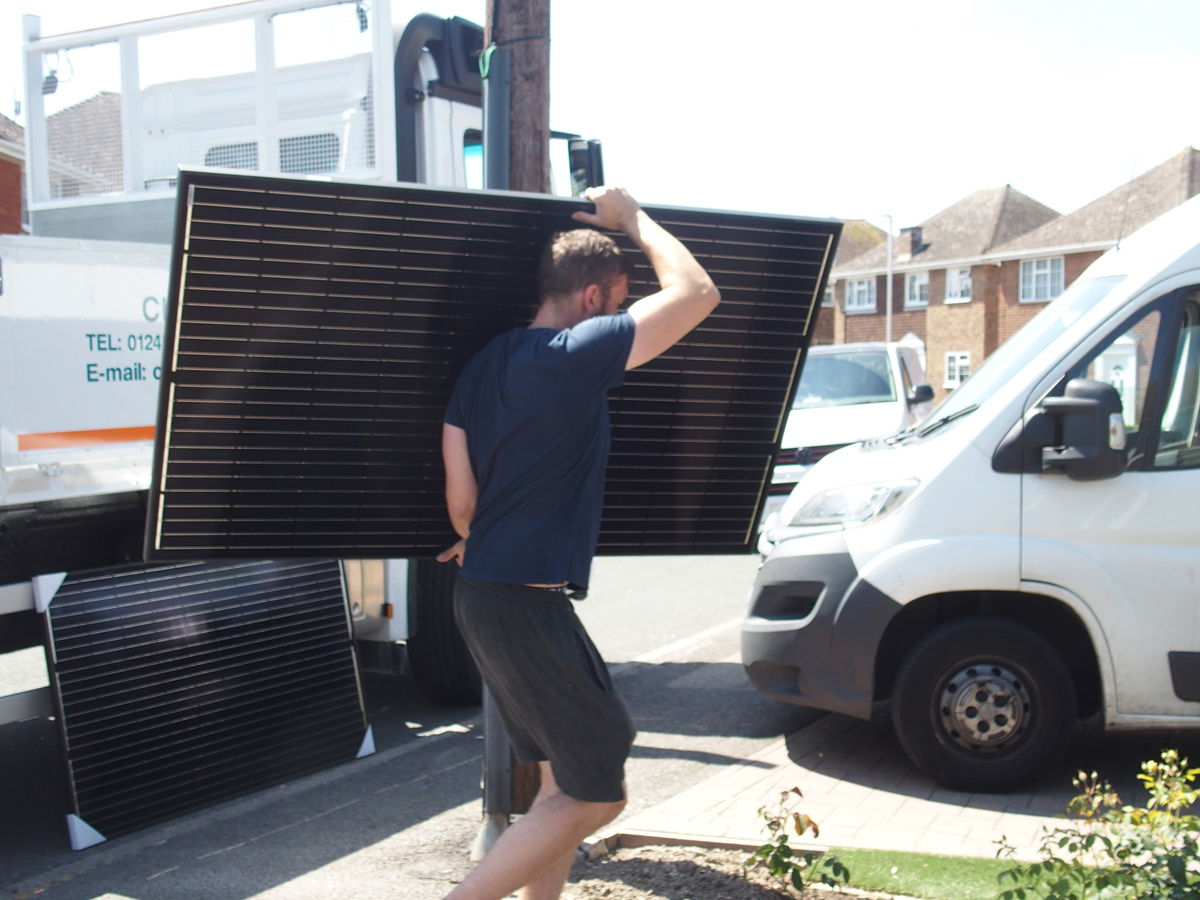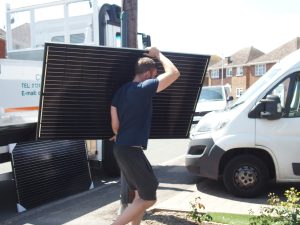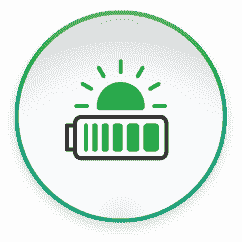People often want to know who can install solar panels, and whether it is necessary to use a fully certified company such as ours to do an installation. We’ll cover this question in detail here, breaking it down by general electrical requirements, and specific solar requirements.
General Electrical Requirements
There are essentially no restrictions on setting up standalone solar panels such as those used to charge a mobile device or power a garden water feature. However, as soon as the system is required to connect to the national electrical grid then that situation changes.
For any electrical work in a domestic property it is a requirement that the installer is electrically competent. In addition, any work must be notified to building control. While technically possible for the notification to be done by a third party, in practice this means that the electrician must be a member of a competent persons scheme.
In the UK the key organizations that provide accreditation and certification for electrical contractors and installers are NAPIT and NICEIC. Members are able to notify their work with building control directly through their organisation.
When a customer hires an electrical professional who is a member of NAPIT and NICEIC, they can enjoy several benefits:
- Assurance of quality and competence: NAPIT and NICEIC ensure their members meet strict standards of technical competence, safety, and quality in electrical work. By hiring a contractor who is a member of either organization, customers can have confidence in the expertise and professionalism of the installer.
- Compliance with regulations: NAPIT and NICEIC members are required to adhere to relevant regulations and codes of practice. This ensures that the electrical work carried out by the installer is compliant with industry standards and legal requirements, providing peace of mind to customers.
- Safety and peace of mind: Electrical work can be potentially hazardous if not performed correctly. Hiring an electrician who is a member of NAPIT or NICEIC reduces the risk of safety issues and faulty installations. These organizations conduct regular assessments and inspections to ensure that their members maintain high levels of safety and quality.
- Access to dispute resolution: In the event of any disputes or complaints, customers can benefit from the dispute resolution services provided by NAPIT or NICEIC. These organizations can mediate between the customer and the installer to reach a fair resolution, providing an added layer of protection for customers.
- Professional conduct: NAPIT and NICEIC members are expected to adhere to a code of conduct that promotes ethical behaviour and good customer service. This means that customers can expect professional treatment, clear communication, and a commitment to customer satisfaction from installers who are members of these organizations.
Overall, hiring an electrical installer who is a member of NAPIT or NICEIC gives customers confidence in the quality of work, compliance with regulations, and a commitment to safety. It provides reassurance and peace of mind that the electrical work will be carried out by a competent and trustworthy professional.
Tanjent is a member of NAPIT (no. 69426) and our electricians are all either NAPIT or NICEIC registered.
Solar Requirements
While a certified electrician is technically capable of installing solar panels, third party organisations often require a higher degree of specialist knowledge and experience.
For example, if you have solar panels installed on your home and you want your electricity supply company to pay you for the excess solar you generate, they will likely insist that the solar installation is done by a company registered with the MCS quality scheme. This provides a guaranteed level of quality for both the workmanship and the electrical components used.
Tanjent is a member of MCS (no. 74140), accredited for the installation of both solar panels and home batteries. For more details see our previous article all about MCS.
Also because of the relatively high cost of a renewable energy system such as solar, you should use a company that is registered with a renewable energy consumer protection scheme such as RECC – for more details see our previous article all about RECC.






